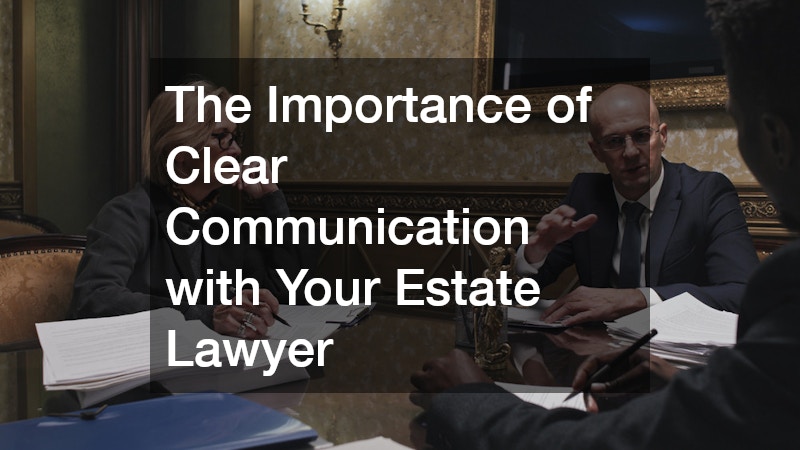
When it comes to managing and distributing your assets, hiring an experienced estate lawyer becomes an essential step. Estate planning is a meticulous process that requires both expertise and attention to detail, and having a seasoned professional by your side can make all the difference.
This guide provides comprehensive insights into finding the right estate lawyer who can cater to your specific needs and secure your future plans effectively.
Understanding the Role of an Estate Lawyer
An estate lawyer plays a pivotal role in the process of estate planning, which encompasses creating a will, establishing trusts, and ensuring that assets are passed on according to the client’s wishes. They provide legal advice to help clients understand their options and the implications of their decisions. Additionally, an estate lawyer offers guidance in minimizing taxes and legal complications, thus safeguarding one’s wealth for future generations.
The expertise of an estate lawyer goes beyond drafting documents. They meticulously review each legal document to ensure that it complies with ever-changing laws and regulations. In doing so, they help clients avoid potential disputes that might arise among heirs or beneficiaries. This proactive approach helps in preventing costly court battles and fosters peace among family members.
Moreover, estate lawyers are adept at addressing complex situations such as blended families, business ownership, and charitable donations. They work collaboratively with financial advisors to construct a comprehensive estate plan that aligns with the client’s financial goals. By offering tailored solutions, they ensure that every aspect of their client’s legacy is preserved and honored according to their wishes.
Finding the Right Estate Lawyer
The process of finding the right estate lawyer begins with identifying your specific needs and objectives, which will guide your search for a professional who specializes in the relevant areas of estate planning. Start by asking for recommendations from friends, family, or trusted advisors who have had positive experiences with estate lawyers. Personal referrals often lead to finding qualified professionals who have a proven track record in handling estate matters.
In addition to personal recommendations, conducting thorough research online can also be beneficial. Many estate lawyers have professional websites that outline their services, qualifications, and client testimonials. Reading these testimonials can provide valuable insights into the lawyer’s expertise, commitment, and overall client satisfaction. This information helps narrow down the pool of potential lawyers, making it easier to make an informed decision.
Once you have shortlisted a few candidates, arrange initial consultations to evaluate their competence and compatibility with your needs. During these meetings, assess their communication skills, approachability, and willingness to listen and understand your concerns. An experienced estate lawyer should be transparent in their fee structure and provide detailed explanations of how they plan to manage your estate planning requirements.
Evaluating an Estate Lawyer’s Experience and Credentials
When evaluating an estate lawyer’s experience, consider their years of practice and the depth of their specialization in estate planning. An experienced estate lawyer will have a comprehensive understanding of complex legal issues and a track record of successful cases. This expertise is crucial, as estate laws are intricate and vary by jurisdiction, requiring a knowledgeable practitioner who can navigate these complexities effectively.
Credentials such as bar association membership, relevant certifications, and professional affiliations can also reflect the lawyer’s dedication to their field. Additionally, recognition and awards from reputable legal organizations are indicators of their commitment to excellence. Such credentials illustrate the lawyer’s ongoing commitment to staying updated with the latest legal developments and continuously improving their skills.
Moreover, consider the lawyer’s ability to resolve conflicts and adapt to unforeseen complications. Strong negotiation skills and keen problem-solving abilities are essential qualities for ensuring a smooth estate planning process. Your goal should be to hire an estate lawyer who not only possesses technical knowledge but also demonstrates relevant experience and an ability to address the unique demands of your case effectively.
The Importance of Clear Communication with Your Estate Lawyer
Effective communication is the cornerstone of a successful relationship with your estate lawyer. Begin by clearly expressing your goals and expectations, providing all necessary information required for comprehensive estate planning. By being transparent about your priorities, your lawyer can devise a plan that precisely aligns with your family dynamics and financial objectives.
An estate lawyer must also communicate complex legal terms and procedures in a manner that is understandable to you. This clarity ensures that you fully comprehend the implications of each decision and enables you to make informed choices concerning your estate. Such clear communication empowers you to participate actively in shaping the future distribution of your assets.
Continual communication is equally important when updates or modifications are needed in the estate plan. Changes in financial situations, family circumstances, or tax laws might necessitate revisions, and an estate lawyer who keeps you informed will ensure that your estate plan remains relevant and effective. By maintaining open communication, you can collaboratively address any issues that arise and ensure that your estate plan accurately reflects your current intentions.




